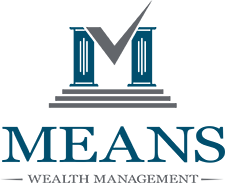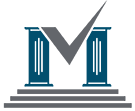Insurance Planning
June 28th is National Insurance Awareness Day, which for most people probably ranks up there with other June holidays like National Prune Day (June 15) or National Parchment Day (also June 28). But insurance and insurance planning are an important, yet often overlooked, part of everyone’s overall financial plan. Having appropriate protections against the risks we can encounter daily ensures that, despite what may happen in our lives, we can stay on track to meet our financial goals and plans.
In this article we will focus on the three most common types of personal property and casualty insurances people have: homeowners, automobile, and excess liability or umbrella. This is not an exhaustive discussion of these coverages, but it should prompt you to review your coverage with your insurance agent or broker to make sure you are adequately protected.
Often the best time to review your insurance coverage is during a policy renewal. If you work with an insurance agent or broker, we recommend having a formal meeting to review your policies and answer any questions or concerns you have. Homeowners and umbrella policies typically renew once a year and automobile policies typically renew every six or twelve months. We also recommend including all your insurance coverages in your financial plan. By doing this, you and your advisor can evaluate your insurance policies within the context of your holistic financial plan, making sure you have the necessary coverages in place, but not more than you need. The old saying remains true: don’t be insurance rich and cash poor.
Here are a few pointers to help as you review your homeowners insurance:
- Buy enough insurance to cover the labor and materials to completely rebuild your home; collectively, this is referred to as the replacement value or replacement cost of your home. This could be different than the market value of your home. Your insurance agent or home builder can help you determine the per square foot replacement cost of homes in your area. With the recent changes in labor rates and material prices post-Covid, this is particularly important to review.
- Understand limits on valuables in your home like jewelry, firearms, or home-based business property. These may need to be scheduled with higher limits in the policy or covered separately under their own policy.
- Take an inventory of the items in your home. This inventory should include photos and/or videos of the items, along with descriptions of the items. These photos or videos ideally should be stored electronically in the cloud so that you may access them from any location.
- If you live in a high-risk flood zone area, you may be required to purchase flood insurance. You should also check to see if you live in a moderate to low-risk flood area. One in three National Flood Insurance Program (NFIP) flood insurance claims originate in moderate- to low-risk flood areas, according to the NFIP which is part of the Federal Emergency Management Agency. Flood insurance could be a consideration if you live in one of these areas.
- Even if you don’t own a home, you should have renters insurance if you rent. This provides protection for your personal property in the dwelling and, maybe most importantly, personal liability coverage.
- Review the deductible on the policy. If you have adequate cash reserves, raising the deductible is one way to lower the cost of the policy.
Here are a few tips as you review your automobile insurance:
- Most states require minimum levels of automobile coverage, but many drivers will need coverage levels beyond these limits.
- Consider dropping collision and comprehensive coverage when your annual premiums equal or exceed 10 percent of your car’s book value.
- Review the deductible on the policy. If you have adequate cash reserves, raising the deductible is one way to lower the cost of the policy.
- Review the liability limits for bodily injury and property damage. Maintain appropriate levels of liability coverage to protect other assets that could be garnished if you were found at fault for an accident.
Umbrella insurance, also called excess liability insurance, is liability insurance that provides coverage once the liability limits of other policies (like home or auto) have been reached. It’s an additional protection for your assets against unforeseen events for which you may be liable. The price of obtaining $1 million of personal liability coverage from an umbrella policy can be relatively low, generally costing between $300 to $500 per year. And for every additional $1 million of financial protection, the incremental premium cost tends to gradually diminish. Learn more here.
Your financial plan, including your different insurance needs and coverages, is dynamic and will evolve over your lifetime. Accordingly, it is important that your financial plan and insurance policies are continually monitored and updated through periodic plan reviews. If you have any questions about your plan or how your existing insurance coverages can help support that plan, please don’t hesitate to contact your Means Wealth advisors for assistance.


